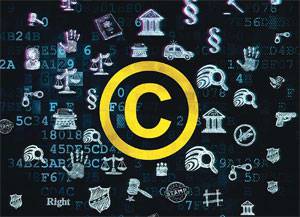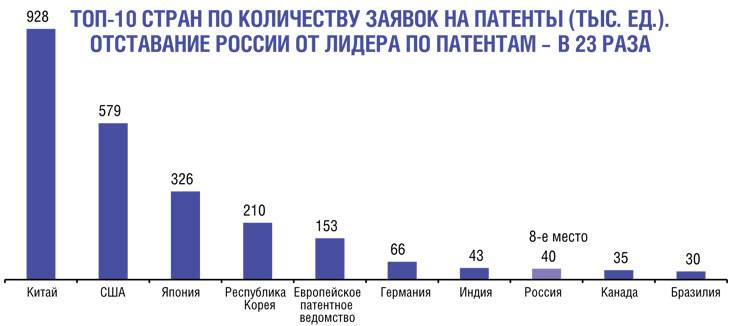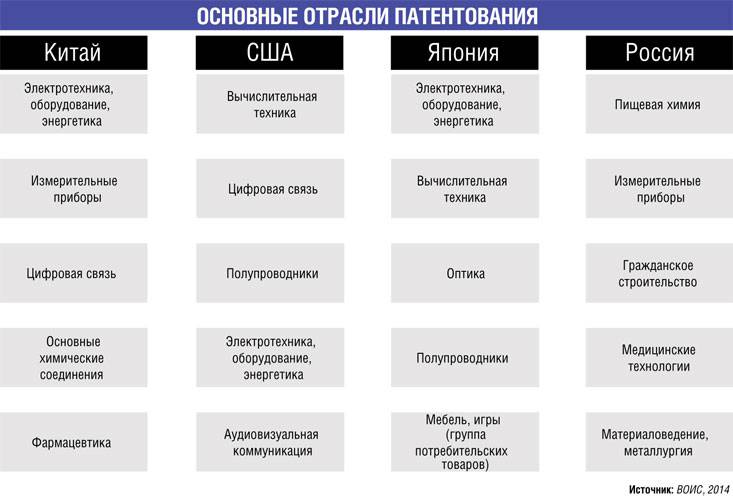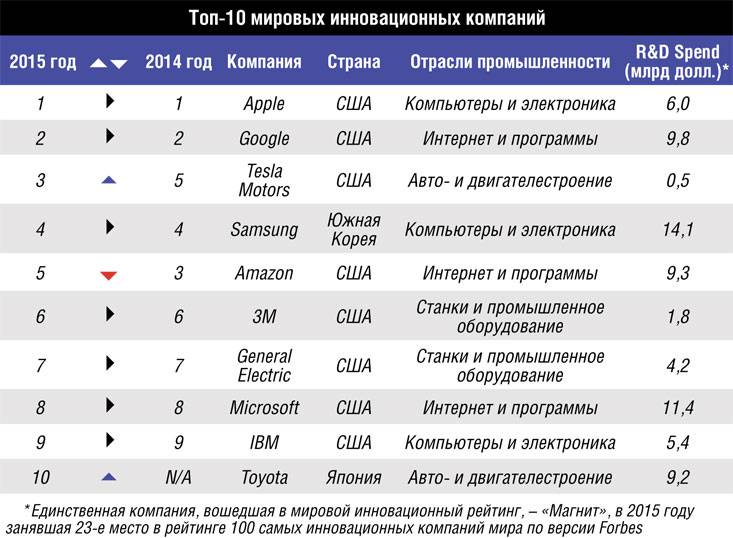Patent Lesson Lessons
Analysis of anti-Russian sanctions shows their main focus on the high-tech sector of our industry, as well as the Eurasian Economic Union and the Commonwealth states participating in cooperation. This is reflected in the domestic market of intellectual property, which is a key element of innovative development.
There are four basic conditions for the functioning of the intellectual property market: the state innovation strategy, a centralized integrated management structure, uniform standards, and trained personnel. How feasible are they with global competition for resources?
Unfair competition
Russia, the CIS - a tasty morsel for our "partners". It is resources, obtaining guaranteed access to them - the real cause and motive of sanctions. Therefore, new motives for their continuation will be invented. The main goal is to make Russia live according to the scenario, the implementation of which will allow the US to maintain leadership.
Because of the sanctions, we cannot enjoy the benefits of the WTO, although we regularly pay huge membership dues. Leaving this organization or not is up to the government to decide. But in any case, it’s time to realize the integration potential accumulated over the 25 years of the CIS. With the formation of the Eurasian Economic Union, such opportunities have increased, including in the defense industry cooperation. In the meantime, by export and import we are tied to the third by the EU and by another for the Asia-Pacific region. And the CIS outside the EAEU accounts for less than five percent. The formation of a common market of the Commonwealth is the first direction for creating competitive products.
The structure of world trade in the transition to the sixth technological order has a steady upward trend in the share of the “fourth basket” - the market of intellectual property (more than 15% of world GDP). So, we need to increase the volume of high-tech products with a large share of value added. Today, the contribution of intellectual property to Russia's GDP is less than one percent. And in the US - 12 percent, in Germany - 7 – 8, in neighboring Finland - 20.
Information becomes the main product. However, in Russia it has been for some reason excluded from January 1 from the structure of objects of civil rights and trafficking. Despite the support of the Council of the Federation, the Chamber of Accounts and the Chamber of Commerce and Industry of the Russian Federation, the repeated instructions of the government, the long-term Strategy for the development of intellectual property has not yet been adopted. The relevant provisions are simply absent in most innovative programs at the national, sectoral, regional and corporate levels. The share of commercialization of intellectual property protected by patents is negligible and amounts to 2008 – 0,4 percent in the EEU and CIS countries.
From 2006 to 2016, several federal laws were adopted, more than 10 government decrees, which determine the methodology for creating unified technologies with the inclusion of documentation and information. What it is? Referring to the Civil Code, Art. 1542: “A single technology is recognized as an objectively expressed result of scientific and technical activity that includes, in one or another combination of invention, utility models, industrial designs, computer programs or other intellectual results that are subject to legal protection, and can serve as a technological basis ... in the civil or military sphere. "

“As soon as we approached this turn and worked out the first models of the formation of uniform technologies, we were immediately presented with a“ gift ”, says Vladimir Lopatin, General Director of the Intellectual Property Corporation of RNIIIS. - Today, the State Duma is discussing a draft law that excludes a single technology from the Civil Code of the Russian Federation. We may lose the legal opportunity to put into circulation those 90 percent of the intellectual potential of scientific research institutes, design bureaus and universities that make up scientific and technical documentation. ” That is, Russia is being squeezed out of this market.
From 2008 to 2014, the year of know-how in our country was equated to wages and was declared a trade secret. Although nowhere in the world such information is not subject to exclusive rights. Moreover, over the past six years, the very structure of the intellectual property market has changed. At the beginning of the century, 80 percent of inventions were introduced on the basis of licenses. But now the non-patent sale, which does not require state registration of transactions, has come out on top. In the Russian legislation, the “error” was corrected, but since 1 in January 2015, the former rule has been introduced in the EAEU: know-how is once again equal to wage data, which prevents the advancement of advanced technologies. Thus, through rule-making and organizational procedures, mechanisms are being laid to contain innovative initiatives and form the intellectual property market. But there are also bureaucratic delays, direct lobbying for the interests of foreign countries and companies.
What happens outside? Partners, primarily the United States, have been actively using the so-called counterfeit ratings since 2004 for appropriate action. They call this or that country with the highest level of industrial “fakes”, after which they impose sanctions. In the US Development Strategy, the threat in the field of intellectual property is considered to be one of the most serious, since 130 receives billions of dollars in annual profits from the sale of copyright and related rights abroad. At the same time, according to the International Intellectual Property Association, there are no uniform and transparent methods for measuring the level of counterfeit. All this suggests the presence of another, unofficial institution of sanctions. It was high time for the Executive Committee of the CIS, the Union State, the Eurasian Economic Commission to develop and adopt uniform rules for determining counterfeit, which can be a powerful lever for the protection of our national and regional interests. This was discussed at the last in the REU them. Plekhanov VIII international forum "Innovative development through the intellectual property market."
According to the law of seven nannies
There are three patterns of development of the global intellectual property market.

Secondly, its inextricable link with economic growth. This is evidenced by the experience of developed countries. But the Strategy for the Development of Intellectual Property (adopted in most states of the Commonwealth) in Russia still remains in the project. Although the conversation about this has been going on for many years, and the first version was developed as early as 2006. As a result, innovation turns into imitation.
Third, the strengthening of the role of state regulation, centralization. In the EAEU and the CIS (except Russia), at the supranational level, since 2011 of the year (as part of the Eurasian Economic Commission, from 2015), there is a single structure that administers processes in relation to all intellectual property objects (OIP). “In Russia, as before, ten years ago, this process is stalled, despite the instructions of the president and government instructions,” recalls Lopatin. “We have more than 20 federal executive bodies, it seems, they are responsible for such administration, but at seven nannies children, as is known, have no eyes.” Moreover, many regulators are in themselves a corrupting factor.
Over the past five years, the state policy has focused on patenting as the main method of legal protection. This leads to the fact that the number of patents is growing, and the implementation, we repeat, is decreasing. The share of sales of registered computer programs and databases also falls (in 2015, by 80%). Is it not because state registration does not mean anything at all, except for the need to pay a fee? “Such rights holders as universities, institutes, design bureaus, research institutes, enterprises, concerns should know that computer programs, databases, topologies of integrated circuits are protected by the fact of their creation, and not by state registration,” Lopatin stresses. “Recently, the Supreme Court of the Russian Federation confirmed this by a decision of its presidium.” It is time for the state to understand that a patent is not needed for its own sake. The purpose of the RID legal protection policy is the commercialization of exclusive rights.
Are our ideas worthless?
The world leader in the number of patents is not the United States, but China, which we are lagging behind in 23 times. And on industrial - in 81 times, the data is given by the deputy head of the Analytical Center at the Government of the Russian Federation Vasily Pushkin. In addition, patenting is carried out in not very popular areas of the economy.

The share of foreigners owning intellectual property in industry is growing. This disturbing trend means that the structure of patent objects is changing. The number of state-owned enterprises, research institutes, design bureaus, state universities involved in the commercialization of patented intellectual property has significantly decreased in the past five years. The management system and accounting policies are ineffective. Often, with the termination of the contract to create the RID, the patent protecting the know-how also ends.
Another negative trend is especially pronounced in Russia and Kazakhstan. Applications of individuals for patentability are already about 40 percent. It would seem that one can rejoice, but if we compare our figure with foreign ones, then there is ten times less there. Why? The fact is that any individual as a patent holder is a serious obstacle to the further practical application of the invention. It is much more difficult to negotiate with an individual. To carry out marketing research and evaluation related to a patent, too, since it costs money, which the inventor, as a rule, does not have. Often they are not even on the annual fee. But after three years of non-payment, the legal protection of the invention ceases, it becomes ownerless, and this is used by foreign partners. They shamelessly assign the OIC, establish production and sell us at an exorbitant price. That is, we not only donate our know-how to the whole world for free, but also disarm ourselves technologically. In 2015, only four patent sales were recorded in Armenia - less than one percent of the number of active ones. The same situation in Belarus and Kazakhstan. In Kyrgyzstan, with the protection of patents everything is fine, but with the sale - the trouble.

The agreement on a single economic space and free trade, the exchange of goods, works and services, unfortunately, ignores the issues of intellectual property. Life itself requires an amendment to this document. After all, a holy place is never empty: it is occupied by TNCs, primarily American, which establish their own rules. “Our Academy of Sciences, institutes and universities, producers of innovative products that use intellectual property, are forced to give in to TNK, being held hostage by the inaction of interstate and government agencies that should regulate these relations,” Lopatin bitterly states. - Directly, this also applies to the structures of the military-industrial complex, whose task is not only to provide the troops with modern weapons and military equipment, but also to fill the market with innovative civilian products. And here, market mechanisms for the use of intellectual property, including dual-use technologies, cannot be avoided. Russia has accumulated a modest but effective experience in developing national standards in this area. It is time for them to adopt interstate GOSTs and international ISO standards. ”
Results - kickbacks
Over the past 20 years, the R & D sphere has become one of the most corruption-related, since it intersects lawmaking, budget money, government procurement, control, supervisory and law enforcement activities. With the growth of spending on research and development in Russia over 15 years more than 13 times (up to 800 billion rubles - 8-e place in the world), their main source remains the budget (about 70%). Moreover, according to expert estimates, up to half of the funds does not reach science. The high level of corruption of R & D (both domestically and in foreign transactions) has become a real threat to national security.
“Ten years ago, about a third of the money allocated for R & D went into kickbacks,” recalls Lopatin. - These facts were confirmed by inspections of Rospatent and FAS. But the problem is not solved. There were stable corruption schemes for the development of budget money with significant kickbacks and the lack of scientific results and innovative projects. We can recall the so-called groups of independent consultants who have repeatedly won competitions in the Ministry of Education and Science, received budget tranches. But when we checked the address of one of these organizations, it turned out that it was registered in the place where the public toilet was located. ”

The following scheme is the so-called co-financing of works, where you are the manager and performer. Inspections of the prosecutor's office showed that the results of intellectual activity in such cases are not used, the funds are mastered without specific results. Lopatin gave an example: in September 2015, one of the factories held competitive negotiations with the definition of R & D for 130 million rubles. A week later, the management company of the state corporation, which includes the enterprise, announced a competition on the same subject, but already for 30 million rubles. He won the structure, which should control this process. In the end, somewhere settled 100 millions. It turns out that the work can be done for much less money, and the difference can be easily put in your pocket. Moreover, according to expert estimates, the real R & D costs six to eight million rubles.
Of course, all this should be monitored not only by public, but also law enforcement organizations. After all, we are talking about the authority of the country, the serious rise in prices for final products, weapons and military equipment. Leaking accounting policies pursued by government customers and state corporations in research and development, stimulates gray and black exports. Over the past four years in Russia at 10, R & D accounted for only 1,3 completed. This means that nine out of ten jobs do not end with anything, or the results obtained with budget financing are not officially declared, but go into the shadow of circulation in the interests of private individuals.
Gray technology exports, which were 2000 – 50 percent in 60, have risen to nearly 90 percent today. Our know-how flows away abroad without consequences for participants in transactions, according to the materials of the Accounts Chamber. This applies primarily to the DIC.
According to the results of the inspections of the General Prosecutor's Office and the Accounts Chamber of Russia, the Ministry of Industry and Trade mastered enormous funds allocated by the state, but the tasks of developing and introducing advanced technologies and developing the scientific and intellectual potential of the aviation industry and shipbuilding have not been resolved. “In 2011 – 2013, 133 billion rubles were spent on R & D on aircraft and shipbuilding programs, the ministry concluded more than 500 government contracts, but the result was only 93 patented by the OIC,” Lopatin says. “These results are incomparable with the resources spent, moreover, none of the inventions are used by the state.”
We have retained the same structure of R&D expenditures, there is no business interest in investing in research and development, while abroad the situation is the opposite. The main customers there were and remain enterprises (USA - 69%, EU - 64%, China - 62%). And our professors and students aviation universities are happy to work on grants for Boeing, Airbus, and other foreign corporations ...
To reduce corruption in R & D, increase their return when creating competitive innovative products it is necessary to:
to include measures to counter the shadow schemes in the number of priority areas of state policy, involving the adoption of systemic decisions at the national and intergovernmental levels;
strengthen the role of the ministries responsible for the real sector of the economy in regulating budget financing;
to involve enterprises in the definition of the subject of the state defense order for the development of innovative technologies necessary for the modernization of production;
limit arbitrary decisions of officials, including the allocation of rights to the RID for use in the civilian sector of the economy;
Introduce an assessment of the risks of using international financial reporting standards in the EAEU and limit their application to organizations and enterprises implementing the GOZ.
We need to urgently create sectoral intellectual property markets and form our common, Eurasian one on their basis. The Chinese already have a research center in every corporation, effectively fighting corruption and the intrigues of the “fifth column”. And what are we?
Information